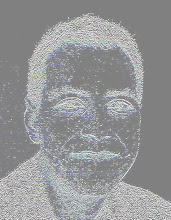Thanks to chaos theory we shall be seized by a pleasant horror whenever we see a butterfly spreading its wings. We might even be tempted to operate the stop watch, waiting for the real crash. Quite a similar thing applies to the noisy date making for après ski in the avalanche warning sector or the pub customer's decision to buy another drink while carrying a knife in his pocket. The vernacular reflects upon the great effects of the small cause. Impredictable and maybe for that reason inevitable.
For the development of modern jurisprudence as well as modern philosphy of language this cause-effects-relation has been a major issue. Both of them understood from the start what modern natural science had to strenuously acquire - the insight into the fact causality does not degrade the universe to a merely mechanic clockwork that easy we can manipulate thanks to our superior intellect like we want to. To jurisprudence this uncertain causality refers to an individual's responsibilty for a breach of law. To language philosophy it refers to the difficulty in defining everyday action. E.g.: The superior mentions to the subordinate: “I'm giving you a free hand.” This can have all kinds of meaning: a direction, a stimulation, a warning. It depends on what insight into the utterance conditions the observer has, what he uses to understand what is said - which means to characterize it as a certain action by interpeting. Insofar there is no objective action independent on that person to attributing a term of action to it. The only thing which can be relatively easy stated is the word-by-word quotation of the utterance. And this is it.
Analytical philosophy of language calls this common denominator basis action. Unfortunately, basis does not mean here the core which keeps the world of language together, but rather an action atom. Too small, too general to be informative. No matter how we make out the action, what consequences we take into account or neglect, it is solely the basis action which will remain unchanged. What happened before, what will happen afterwards, might help to understand the complex, but is bound to transcend the basis action.
For describing that phenomenon analysis has found the nice image of an accordeon. We can expand it to the length of two arms or fold it up to its original finger state. But the important thing is this original state does not make a sound. It merely waits to be expanded, interpeted. So the question remains if we really have found the right measure, taken the relevant aspects into consideration. That is why the court sentence will be negotiated with reference to the attested actant's responsibility. That is why one and the same utterance might be regarded by two different hearers (at least) two different speech acts. That is why second order cybernetics is interested in dealing with observing instead of observed systems.
Maybe we should play the accordeon more often before jumping to the conclusion that reception of Heavy Metal or violent videos is a lethal basis action per se.
For the development of modern jurisprudence as well as modern philosphy of language this cause-effects-relation has been a major issue. Both of them understood from the start what modern natural science had to strenuously acquire - the insight into the fact causality does not degrade the universe to a merely mechanic clockwork that easy we can manipulate thanks to our superior intellect like we want to. To jurisprudence this uncertain causality refers to an individual's responsibilty for a breach of law. To language philosophy it refers to the difficulty in defining everyday action. E.g.: The superior mentions to the subordinate: “I'm giving you a free hand.” This can have all kinds of meaning: a direction, a stimulation, a warning. It depends on what insight into the utterance conditions the observer has, what he uses to understand what is said - which means to characterize it as a certain action by interpeting. Insofar there is no objective action independent on that person to attributing a term of action to it. The only thing which can be relatively easy stated is the word-by-word quotation of the utterance. And this is it.
Analytical philosophy of language calls this common denominator basis action. Unfortunately, basis does not mean here the core which keeps the world of language together, but rather an action atom. Too small, too general to be informative. No matter how we make out the action, what consequences we take into account or neglect, it is solely the basis action which will remain unchanged. What happened before, what will happen afterwards, might help to understand the complex, but is bound to transcend the basis action.
For describing that phenomenon analysis has found the nice image of an accordeon. We can expand it to the length of two arms or fold it up to its original finger state. But the important thing is this original state does not make a sound. It merely waits to be expanded, interpeted. So the question remains if we really have found the right measure, taken the relevant aspects into consideration. That is why the court sentence will be negotiated with reference to the attested actant's responsibility. That is why one and the same utterance might be regarded by two different hearers (at least) two different speech acts. That is why second order cybernetics is interested in dealing with observing instead of observed systems.
Maybe we should play the accordeon more often before jumping to the conclusion that reception of Heavy Metal or violent videos is a lethal basis action per se.

No comments:
Post a Comment